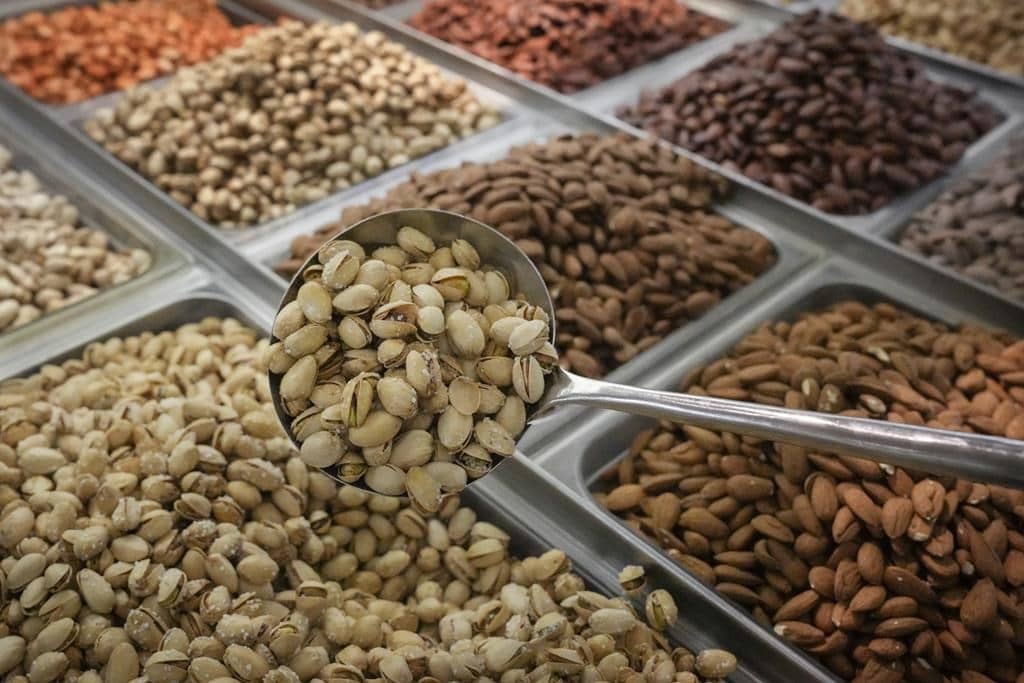Christmas music is playing quietly over the speakers at a huge supermarket in Mississauga, Ontario, as customers go through the aisles, picking the best lemon, and checking the large oil counter in the middle of the shop. But this isn’t just any food business. Move past the make and the olives, and you’ll notice trays of tabbouleh, chickpeas and fattoush, as well as dish preparing on rotating spits. Additionally, you’ll find a huge dessert section with beautiful displays of gold baklava and additional sweets. Behind two sliding doors, columns of puffed-up bread food emerge on a conveyor belt from the oven, set to be packaged and sold to consumers. This is Adonis, a Middle Eastern retailer that got its start in Montreal in 1978. The Grocer is gearing up to open its 16th place in London, Ontario, in the summer of 2015 in response to customer demand who frequently travels by regular to the Mississauga area. Adonis and other specialty stores are expanding thanks to both younger decades’ more varied choices and immigration. Sherif El Gharbawy, the regional director for Ontario, said that Adonis is the” second stop once they land” for many visitors to Canada because they frequently learn about the business before they even arrive. ” All the newcomers, this is where they start. Like this, you’re raising … a new wave of loyal customers “.Changing client choices are apparent in conventional retailers also, where the so-called worldwide aisle isn’t usually enough to satisfy demand nowadays. Salima Jivraj, accounts director and diverse lead at Nourish Food Marketing,” I think the grocers have actually done a great job of offering products that are ethnically diverse over the past ten years.” According to Jivraj ,rocers have made significant strides in expanding their services because they are aware of how beneficial it can be. Multiculturalism is the norm today, in terms of advertising and marketing. According to Statistics Canada, there is a growth in racial groups because South Asian, Taiwanese, and Black people combined made up more than 16 percent of the population in 2021. Nearly a million people identified as Filipino, 1.3 million as Indian, and 1.7 million as Taiwanese, according to the survey. Winning the purchasing money of new Indians is a vital strategy for food retailers and suppliers, said Paul Hogan, vice-president and public administrator at Conagra Brands International. ” You see that coming to life in store”, he said. ” There’s just a greater variety of offering and assortment, space allocation “.But Canadians ‘ palates are changing for other reasons as well, Jivraj said, especially among younger generations. She attributes this in part to the restaurant field, saying,” People generally are just more interested in different flavors from around the world, and they’re more exciting with the food they want to try.” She said,” I believe a lot of our enthusiasm for what we want to have and what we want to have comes from food service,” noting that social media also plays a significant role in introducing younger years to new foods and recipes. Specialty shops like Adonis and Asian retailer T&, T are experiencing constant growth as well as aid from Canada’s largest retailers. T&, T was purchased by Loblaw in 2009 and just expanded into the U. S. Metro bought a majority interest in Adonis in 2011 before buying the business outright in 2017 in 2017. It’s something everyone’s looking for, according to El Gharbawy, a sign that the major retailers were trying to entice a growing number of customers who are no longer viewed as market.
Shellfish recalled in 3 American counties over norovirus issues
Canada Post says’ important’ delay will get cleared before Christmas
According to Adonis vice-president and public director Eric Provost, Adonis has added five stores to its system since 2017. He anticipates the company’s expansion to increase, especially in Ontario and possibly other provinces. ‘ Channelblurring’Like Adonis, T&, T has seen its user base enhance over period. ” We’ve grown beyond merely an Asiatic clientele”, T&, T chief executive Tina Lee told The Canadian Press in a new interview. Hogan refers to this as” network blurring,” where retailers that have long been associated with a particular area become well-known across populations. As private label products from specialist supermarkets enter another stores, that line becomes even more ambiguous. Chief executive Per Bank stated on Loblaw’s most recent earnings call that the company is adding more T&, T-branded products to its other locations to better serve the growing immigrant population. Provost noted that some Adonis products can be found in other Metro-owned stores as well as those produced by the company’s importer and producer, Phoenicia Group. El Gharbawy noted that the product mix of some stores may be more Middle Eastern-centric while others may be more geared toward customers in Greece, Italy, and Eastern Europe, while differences between Adonis stores may vary slightly depending on local demographics. Hogan claimed that gamers have been paying more attention to the neighborhoods they live in. They have data by neighborhood, which means their offerings are becoming more sophisticated and targeted to the people who are around them. This is true of discount retailer Food Basics, which is also owned by Metro, which illustrates how changing tastes are influencing different stores even within the same parent company. Meeting the needs of newcomers as well as other generations of immigrants has” just become that more important,” according to Metro executive vice-president for Ontario Paul Bravi, as immigration has increased Canada’s population over the years. While in prior years some Food Basics stores didn’t even have an international aisle, the past decade has seen steady growth for the category, and now each store’s assortment caters to the local community, said Bravi. ” I think the next 10 years, though, it’s going to be an accelerated growth”, he said. ” It’s critical to our future”.
